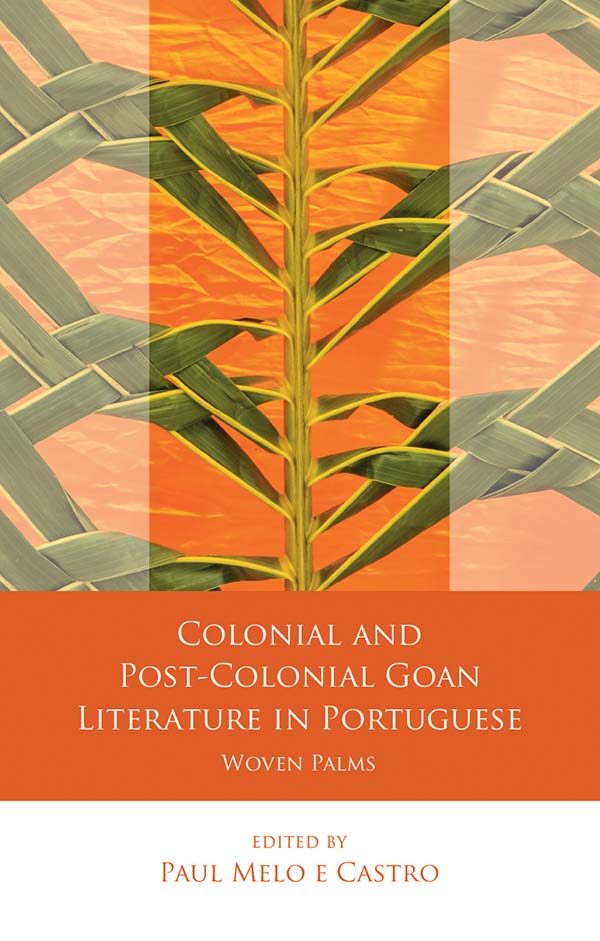Colonial and Post-Colonial Goan Literature in Portuguese
Woven Palms
Golygydd(ion) Paul Michael Melo e Castro
Iaith: Saesneg
Dosbarthiad(au): Literary Criticism
Cyfres: Iberian and Latin American Studies
- Chwefror 2019 · 288 tudalen ·216x138mm
- · Clawr Meddal - 9781786833907
- · eLyfr - pdf - 9781786833914
- · eLyfr - epub - 9781786833921
Daw’r casgliad hwn o ysgrifau ag ysgolheigion llenyddiaeth Bortwgeeg Goa amlwg o India, Brasil, Portiwgal a Phrydain Fawr at ei gilydd. Am y tro cyntaf yn Saesneg, mae’r gyfrol yn olrhain gweithiau naratif, awduron a themâu allweddol y diriogaeth fach ond arwyddocaol hon. Roedd Goa yn drefedigaeth Portiwgal rhwng 1510 a 1961, a dyma safle cyfarfod arbennig o danbaid rhwng y Gorllewin a’r Dwyrain. Mae’r cyfarfyddiad problematig ond cynhyrchiol rhwng Ewrop ac India sydd wedi nodweddu hanes Goa yn thema amlwg yn ei llenyddiaeth, sy’n cynnig cipolwg pwysig a deunydd meddwl ôl-drefedigaethol. Llenyddiaeth iaith Bortwgeeg Goa yw’r unig lenyddiaeth sylweddol o India i gael ei hysgrifennu mewn iaith Ewropeaidd ar wahân i’r Saesneg. O ganlyniad, mae’n cynnig pwynt cymharu heriol gyda llenyddiaeth Saesneg o India ynghyd â lle i archwilio damcaniaeth ôl-drefedigaethol sydd yn aml wedi’i gwreiddio ymhlyg mewn profiad trefedigaethol Indiaidd Prydeinig.
Series Editors’ Foreword
Notes on Contributors
Introduction: The Cartography of Goan Literature in Portuguese: One Language in a Multilingual Social Landscape - Paul Melo e Castro
The Story of Goan Literature in Portuguese: A Question of Terminology - Hélder Garmes and Paul Melo e Castro
Against British Rule and Indian Castes: The First Portuguese language Goan Novel, Os Brahmanes (1866) by Francisco Luís Gomes - Everton V. Machado
The Lives and Times of GIP and Francisco João da Costa - Sandra Ataíde Lobo
Echoes of Portuguese India in Goan Poets, 1893–1973 - K. David Jackson
In the Land of ‘Advogadomania’: The Representation of the Goan Provisionário in José da Silva Coelho’s Contos Regionais - Luís Pedroso de Lima Cabral de Oliveira
‘The Voice of Two Worlds’: Lusotropicalism in the Context and Reception of Vimala Devi’s Súria - Duarte Drumond Braga
Women without Men in Vimala Devi’s Monção - Cielo Giselda Festino
Women’s Worlds in Women’s Words: Poetry and Memory in Vimala Devi and Eunice De Souza - Joana Passos
Science over Superstition? The Representation of the Social World of the Novas Conquistas in Bodki (1962) by Agostinho Fernandes - Eufemiano Miranda and Paul Melo e Castro
Sem Flores Nem Coroas: Reflections on the Play by Orlando Da Costa - M. Filomena de Brito Gomes Rodrigues
The Dregs Populating the Village of Santana: Rural Goa in Three Stories by Epitácio Pais - Paul Melo e Castro
Writing from within the Father’s House and beyond: Goan Women Writing in Different Historical Spaces - Edith Noronha Melo Furtado
Notes
Index
Awdur(on): Paul Michael Melo e Castro


